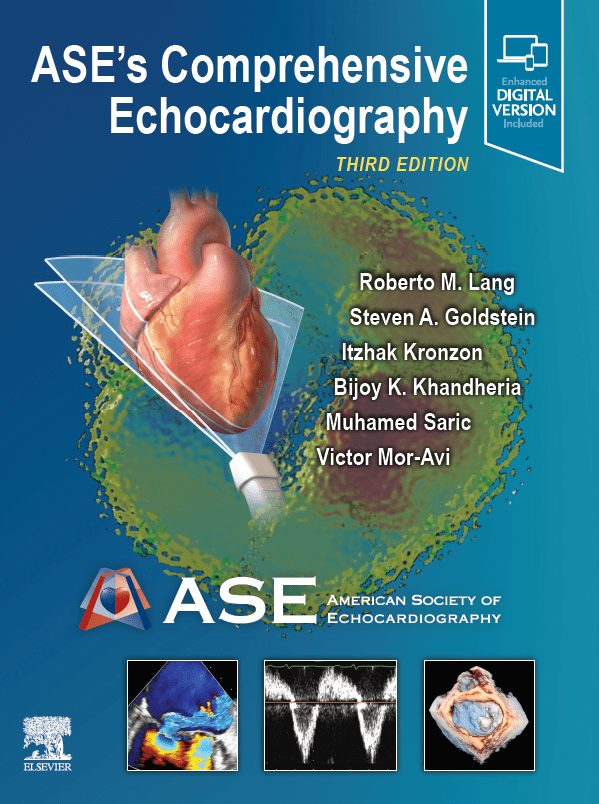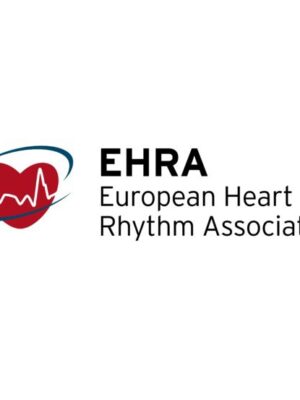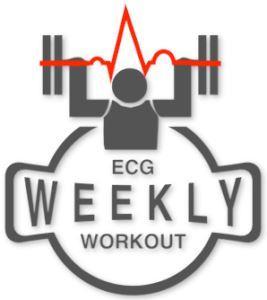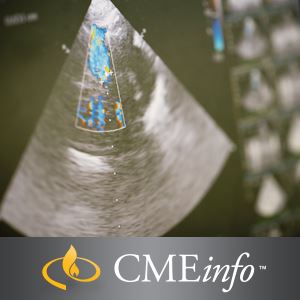No products in the cart.
[
Table of Contents
Section I Physics and Instrumentation 1. General Principles of Echocardiography 2. Three-Dimensional Echocardiography 3. Doppler Principles 4. Tissue Doppler, Myocardial Work: Physics and Techniques 5. Speckle Tracking and Strain Measurements: Principles, Techniques and Limitations 6. Clinical Utility of Global Longitudinal Strain Section II Transthoracic Echocardiography 7. Transthoracic Echocardiography: Nomenclature and Standard Views 8. Technical Quality and Tips 9. Transthoracic Echocardiography Tomographic Views 10. M-Mode Echocardiography 11. Doppler Echocardiography: Normal Antegrade Flow Patterns Section III Transesophageal Echocardiography 12. Introduction to Transesophageal Echocardiography: Indications, Risks, Complications, and Protocol 13. Transesophageal Echocardiography Tomographic Views 14. Applications of Transesophageal Echocardiography 15. Pitfalls and Artifacts in Transesophageal Echocardiography Section IV Hand-Held Echocardiography 16. Cardiac Point-of-Care Ultrasound: Background, Instrumentation and Technique 17. Echocardiography in Emergency Clinical Presentation Section V Contrast Echocardiography 18. Ultrasound Contrast Agents 19. Physical Properties of Microbubble Ultrasound Contrast Agents 20. Applications of Ultrasound Contrast Agents 21. Use of Contrast in the ICU and Emergency Department 22. Technical Aspects of Contrast Echocardiography Section VI Left Ventricular Systolic Function 23. Left Ventricular Systolic Function: Basic Principles 24. Global Left Ventricular Systolic Function: Ejection Fraction Versus Strain 25. Regional Left Ventricular Systolic Function 26. Myocardial Strain in Valvular Heart Disease Section VII Right Heart 27. Right Ventricular Anatomy 28. The Physiologic Basis of Right Ventricular Echocardiography 29. Imaging the Right Heart: Limitations and Technical Considerations 30. Assessment of Right Ventricular Systolic and Diastolic Function 31. Right Ventricular Hemodynamics 32. The Right Atrium 33. Pulmonary Embolism Section VIII Diastolic Function 34. Physiology of Diastole 35. Echo Doppler Parameters of Diastolic Function 36. Clinical Recommendations for Echocardiography Laboratories for Assessment of Left Ventricular Diastolic Function and Filling Pressures 37. Causes of Diastolic Dysfunction Section IX Left Atrium 38. Assessment of Left Atrial Size 39. Assessment of Left Atrial Function Section X Ischemic Heart Disease 40. Ischemic Heart Disease: Which Test to Use? 41. Ischemic Heart Disease: Basic Principles 42. Acute Chest Pain Syndromes: Differential Diagnosis 43. Echocardiography in Acute Myocardial Infarction 44. Echocardiography in Stable Coronary Artery Disease 45. Old Myocardial Infarction 46. End-Stage Cardiomyopathy Due to Coronary Artery Disease 47. Coronary Artery Anomalies 48. Coronary Artery Imaging Section XI Stress Echocardiography 49. Effects of Exercise, Pharmacological Stress and Pacing on the Cardiovascular System 50. Diagnostic Criteria and Accuracy 51. Stress Echocardiography: Methodology 52. Stress Echocardiography: Image Acquisition 53. Stress echocardiography: Prognosis 54. Echocardiography for the Assessment of Myocardial Viability in Ischemic Cardiomyopathy 55. Contrast-Enhanced Stress Echocardiography 56. Stress Echocardiography for Valve Disease: Aortic Regurgitation and Mitral Stenosis 57. Stress Echocardiography: Comparison with Other Techniques Section XII Hypertrophic Cardiomyopathies 58. Pathophysiology and Variants of Hypertrophic Cardiomyopathy 59. Hypertrophic Cardiomyopathy: Pathophysiology, Functional Features and Treatment of Outflow Tract Obstruction 60. Differential of Hypertrophic Cardiomyopathy versus Secondary Conditions That Mimic Hypertrophic Cardiomyopathy 61. Hypertrophic Cardiomyopathy: Assessment of Therapy 62. Hypertrophic Cardiomyopathy: Screening of Relatives 63. Apical Hypertrophic Cardiomyopathy 64. The Role of Echocardiography in the Screening and Evaluation of Athletes 65. Echocardiographic Assessment of Myocarditis Section XIII Dilated and Other Cardiomyopathies 66. Dilated Cardiomyopathy: Etiology, Pathophysiology and Echocardiographic Evaluation 67. Echocardiographic Predictors of Outcome in Patients with Dilated Cardiomyopathy 68. Right Ventricle in Dilated Cardiomyopathy 69. Restrictive Cardiomyopathy: Classification 70. Echocardiographic Diagnosis of Left Ventricular Noncompaction Cardiomyopathy 71. Hereditary and Acquired Infiltrative Cardiomyopathy 72. Endomyocardial Fibrosis 73. Restriction versus Constriction 74. Echocardiography in Arrhythmogenic Right Ventricular Cardiomyopathy 75. Takotsubo Cardiomyopathy 76. Familial Cardiomyopathies Grace Hsieh, Jennifer Hellawell, Frederick L. Ruberg, Omar Siddiqi and Ravin Davidoff 77. Echocardiography in Cor Pulmonale and/or Pulmonary Heart Disease Section XIV Aortic Stenosis 78. Aortic Stenosis Morphology 79. Quantification of Aortic Stenosis Severity 80. Aortic Stenosis: Risk Stratification and Timing of Surgery 81. Risk Stratification – Timing of Surgery 82. Low-Flow, Low-Gradient Aortic Stenosis with Reduced Left Ventricular Ejection Fraction 83. Low-Flow, Low-Gradient Aortic Stenosis with Preserved Left Ventricular Ejection Fraction 84. Asymptomatic Severe Aortic Stenosis 85. Subaortic Stenosis Section XV Aortic Regurgitation 86. Aortic Regurgitation: Etiologies and Left Ventricular Responses 87. Aortic Regurgitation: Pathophysiology 88. Quantitation of Aortic Regurgitation 89. Risk Stratification: Timing of Surgery and Percutaneous Interventions for Aortic Regurgitation Section XVI Mitral Stenosis 90. Rheumatic Mitral Stenosis 91. Quantification of Mitral Stenosis 92. Nonrheumatic Etiologies of Mitral Stenosis: Situations that Mimic Mitral Stenosis 93. Role of Hemodynamic Stress Testing in Mitral Stenosis 94. Consequences of Mitral Stenosis Section XVII Mitral Regurgitation 95. Etiologies and Mechanisms of Mitral Valve Dysfunction 96. Mitral Valve Prolapse 97. Secondary Mitral Regurgitation 98. Quantification of Mitral Regurgitation 99. Asymptomatic Severe Mitral Regurgitation 100. Role of Exercise Stress Testing in Mitral Regurgitation Section XVIII Tricuspid and Pulmonic Valve Disease 101. Tricuspid Valve Complex: Anatomy by 2D and 3D Echocardiography 102. Epidemiology, Etiology and Natural History of Tricuspid Regurgitation 103. Quantification of Tricuspid Regurgitation 104. Indications for Tricuspid Valve Intervention 105. Imaging for Surgical and Percutaneous Tricuspid Valve Procedures 106. Device-Lead Associated Tricuspid Regurgitation 107. Pulmonic Regurgitation, Etiology, and Quantification 108. Chapter 108. Tricuspid and Pulmonic Stenosis Section XIX Prosthetic Valves 109. Classification of Prosthetic Valve Types and Fluid Dynamics 110. Aortic Prosthetic Valves 111. Mitral Prosthetic Valves 112. Mitral Valve Repair 113. Tricuspid and Pulmonic Prosthetic Valves Section XX Infective Endocarditis 114. Infective Endocarditis: Role of Transthoracic versus Transesophageal Echocardiography 115. Echocardiography for Prediction of Cardioembolic Risk 116. Limitations and Technical Considerations in Infective Endocarditis 117. Echocardiography and Decision Making for Surgery 118. Intraoperative Echocardiography in Infective Endocarditis Section XXI Pericardial Disease 119. Normal Pericardial Anatomy 120. Pericarditis 121. Pericardial Effusion and Cardiac Tamponade 122. Constrictive Pericarditis 123. Effusive Constrictive Pericarditis 124. Pericardial Cysts and Congenital Absence of the Pericardium Section XXII Tumors and Masses 125. Primary Benign, Mailgnant and Metastatic Tumors in the Heart 126. Left Ventricular Thrombus 127. Left Atrial Appendage Thrombus 128. Right Heart Thrombi 129. Normal Anatomic Variants and Artifacts Section XXIII Diseases of the Aorta 130. Aortic Atherosclerosis and Embolic Events 131. Aortic Aneurysm 132. Sinus of Valsalva Aneurysm 133. Aortic Dissection 134. Penetrating Atherosclerotic Ulcer and Intramural Hematoma 135. Blunt Aortic Trauma 136. Intraoperative Echocardiography 137. Postoperative Echocardiography of the Aorta 138. Aortitis Section XXIV Adult Congenital Heart Diseases 139. Congenital Heart Disease: Basic Principles 140. Systematic Approach to Adult Congenital Heart Disease 141. Common Congenital Heart Defects Associated with Left-to-Right Shunts 142. Obstructive Lesions 143. The Adult with Unrepaired Complex Congenital Heart Defects 144. Adult Congenital Heart Disease with Prior Surgical Repair Section XXV Systemic Diseases 145. Hypertension 146. Diabetes Mellitus 147. End-Stage Renal Disease 148. Obesity 149. Rheumatic Fever and Rheumatic Heart Disease 150. Systemic Lupus Erythematosus 151. Antiphospholipid Syndrome 152. Carcinoid Heart Disease 153. Amyloid 154. Sarcoidosis 155. Cardiac Involvement in Hypereosinophilic Syndrome 156. Endocrine Disease 157. Chagas Cardiomyopathy 158. Sickle Cell Disease 159. Human Immunodeficiency Virus 160. Cardiotoxic Effects of Cancer Therapy 161. Pregnancy and the Heart 162. Cocaine 163. Incidental Non-cardiovascular Findings on Echocardiography Section XXVI Interventional Echocardiography 164. Evaluation of patients undergoing Transcatheter Aortic Valve Replacement 165. Mitral Valve Balloon Valvuloplasty 166. Percutaneous Mitral Edge-to-Edge Repair 167. Transcatheter Mitral Valve Replacement 168. Transcatheter Valve-in-Valve Implantation 169. Atrial and Ventricular Septal Defect Closure 170. Transcatheter Closure of Cardiac Pseudoaneurysms 171. Echocardiographic Imaging of Left Atrial Appendage Occlusion 172. Periprosthetic Leaks 173. Echo-Guided Biopsy of Intracardiac Masses 174. Vacuum Extraction of Intracardiac Masses Section XXVII Echocardiography in Heart Failure 175. Systematic Echocardiographic Approach to Left Ventricular Assist Device Therapy 176. Extracorporeal Membrane Oxygenation, Impella, and Other Circulatory Mechanical Support 177. Post Heart Transplant Echocardiographic Evaluation 178. Pulmonary Hypertension 179. Echocardiography in Patients with Heart Failure with Preserved Ejection Fraction
Reviews
There are no reviews yet.
Only logged in customers who have purchased this product may leave a review.
]





